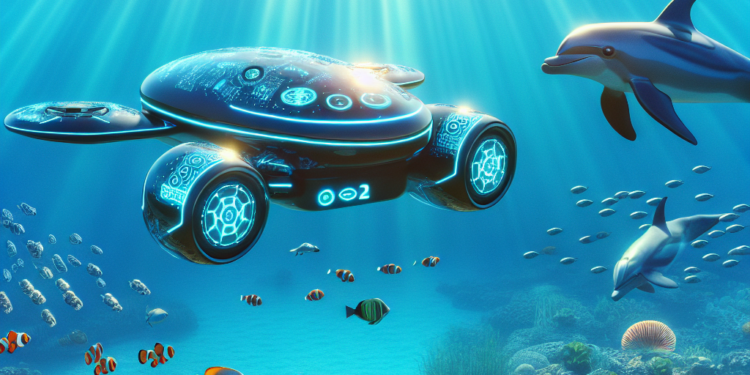Marine life conservation is a critical issue facing our planet today. With the rise of global warming, overfishing, pollution, and habitat destruction, our oceans are facing unprecedented threats. However, thanks to advancements in technology, particularly artificial intelligence (AI), we have the opportunity to make significant strides in protecting and preserving marine life.
AI is revolutionizing the way we approach marine life conservation by providing new tools and technologies for monitoring, analyzing, and predicting threats to the ocean environment. From tracking endangered species to identifying illegal fishing activities, AI is helping us better understand and protect our marine ecosystems.
One of the key applications of AI in marine life conservation is in monitoring and tracking endangered species. Many marine species, such as whales, dolphins, and sea turtles, are facing the risk of extinction due to human activities. By using AI-powered drones and satellites, researchers can monitor these species’ movements, behaviors, and population sizes in real-time. This data allows conservationists to identify critical habitats, migration routes, and breeding grounds, helping them develop targeted conservation efforts to protect these species.
In addition to tracking endangered species, AI is also being used to combat illegal fishing activities. Illegal, unreported, and unregulated (IUU) fishing is a major threat to marine biodiversity and sustainability. AI-powered algorithms can analyze satellite data to detect suspicious fishing vessels and track their movements in real-time. By identifying and monitoring illegal fishing activities, authorities can take swift action to enforce regulations and protect marine ecosystems from overexploitation.
Furthermore, AI is helping to monitor and assess the health of coral reefs, one of the most diverse and valuable ecosystems in the world. Coral reefs are under threat from rising sea temperatures, pollution, and ocean acidification, leading to widespread coral bleaching and degradation. AI-powered underwater robots can collect data on water quality, coral health, and marine biodiversity, providing researchers with valuable insights to develop strategies for coral reef restoration and conservation.
Another important application of AI in marine life conservation is in predicting and mitigating the impacts of climate change on oceans. AI algorithms can analyze vast amounts of environmental data to forecast the effects of climate change on marine ecosystems, such as rising sea levels, ocean acidification, and changes in temperature and salinity. By predicting these changes, scientists can develop adaptation strategies to protect marine life and ensure the resilience of ocean ecosystems in the face of climate change.
In addition to these applications, AI is also being used to improve marine conservation efforts through data analysis and modeling. By analyzing large datasets on marine biodiversity, ocean temperatures, and habitat distribution, AI algorithms can identify patterns and trends that help researchers understand the complex interactions within marine ecosystems. This information is crucial for developing effective conservation strategies, such as marine protected areas, sustainable fishing practices, and habitat restoration projects.
Overall, AI is playing a crucial role in advancing marine life conservation efforts by providing new tools, technologies, and insights to protect and preserve our oceans. From tracking endangered species to combating illegal fishing activities, AI is revolutionizing the way we approach marine conservation, enabling us to better understand, monitor, and protect the diverse marine life that inhabits our planet’s oceans.
As the threats facing marine ecosystems continue to grow, the need for innovative solutions to protect and conserve marine life has never been more urgent. By harnessing the power of AI, we have the opportunity to make meaningful progress in safeguarding our oceans and ensuring the long-term sustainability of marine biodiversity for future generations. With continued research, collaboration, and investment in AI technologies, we can work together to create a more sustainable and resilient future for our planet’s marine life.













